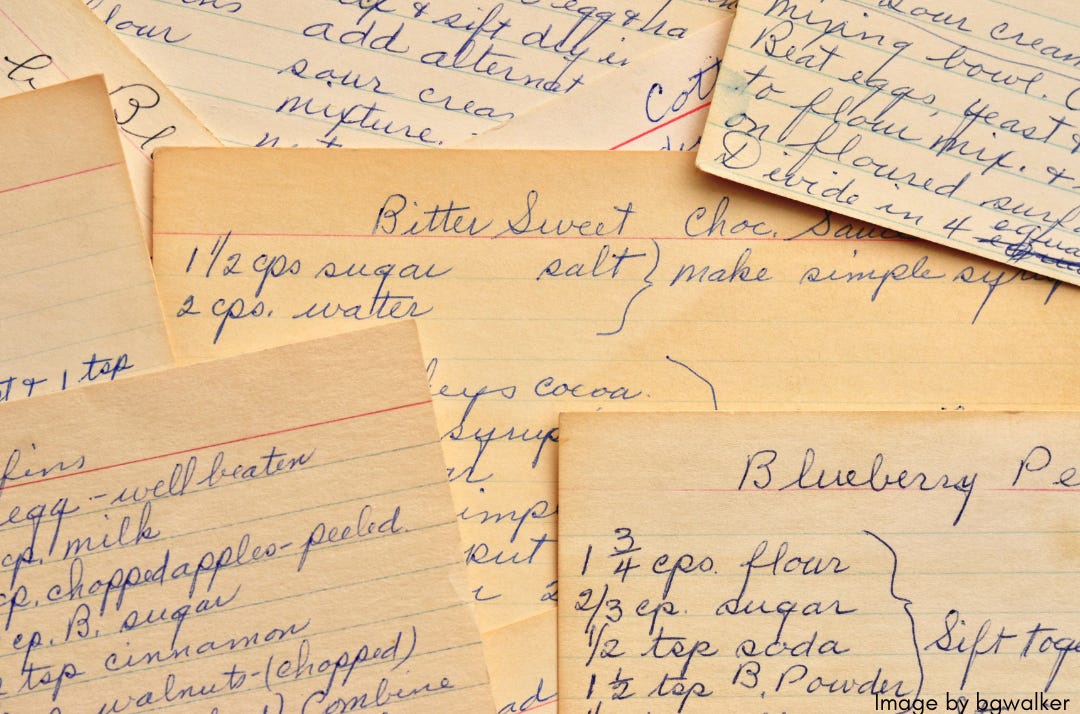This year marks the 10 year anniversary of me starting my journey into wartime recipes. It’s hard to believe it’s been that long! A whole decade of experience, plus 2 more decades of general baking experience has sure taught me a lot.
I made a lemon cheesecake for my son’s birthday that I modified with adding raspberries and raspberry jam. It was really delicious and I was thrilled I had a baked cheese cake turn out for once! (It’s all about the water bath.)
But the recipe I used… well, it was the last straw. It called for "organic sugar, organic flour, organic butter.” But not organic eggs, apparently.
Cue the eyeroll.
The Language of Recipes
Recipes are a universal language. With the accurate measuring tools, access to ingredients, and a recipe in your spoken language, anyone can make anything from literally anywhere in the world.
Just think about that for a second. What an amazing thing to be able to transport yourself anywhere and touch a new culture just by making food in your kitchen!
The experience of the baker/cook in some part, however, depends on the language of the recipe.
There are different contrasting types of recipes out there:
well-written vs. badly written recipes
vague vs. detailed recipes
plain vs. fancy recipes
inclusive vs. exclusive recipes
Writing recipes is an art, and not everyone is good at it. I’ve found that to be true in modern recipes, but I’ve discovered this in vintage recipes too. Some recipes flow beautifully and they are so easy to get through with an amazing end product. Other recipes have dumb instructions that either leave important steps out, forget to include an ingredient, or put the ingredients in the wrong order (a personal pet peeve). The maker is left to rely on their own experience (or lack thereof) to figure it out.
Keep reading with a 7-day free trial
Subscribe to Victory Kitchen Podcast Substack to keep reading this post and get 7 days of free access to the full post archives.





